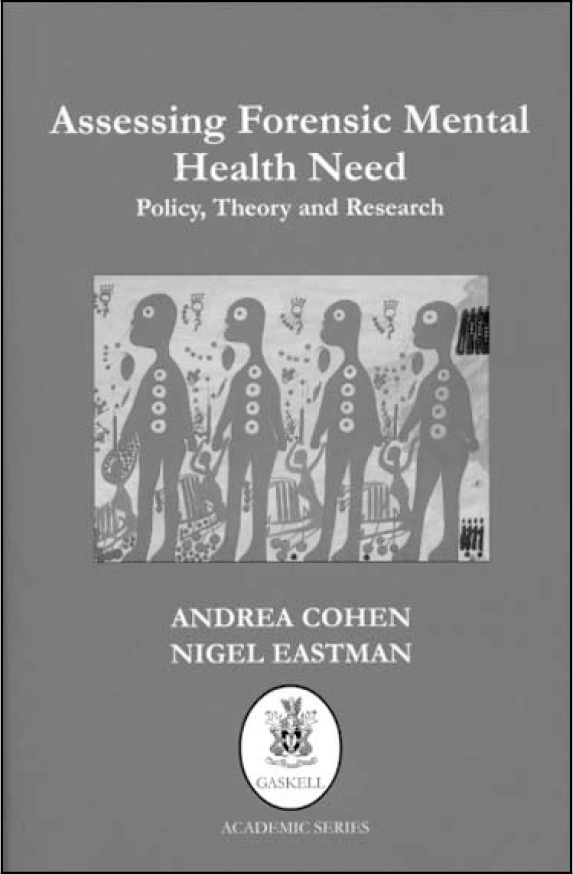Some time ago I was asked by Gaskell if I would review the outline of a book — this book — in order to help them come to a view on possible publication. I suggested that it would have a narrow (forensic) audience, but it would be worthwhile to publish an authoritative book on needs assessment.

I was both right and wrong. This book could almost be entitled ‘Everything you ever wanted to know about needs assessment, but was too afraid to ask’. I realised very early on in my reading that needs assessment was so much more complicated than I had first thought. Rationality in service planning is the goal, but at the same time it is also subjective, politically driven and resource managed. The authors offer a detailed description of needs assessment policy with an emphasis on mentally disordered offenders (MDOs) and a theoretical framework to enable the reader to understand the strengths and weaknesses of the various approaches (survey, rates under treatment, social indicator, key informant and community opinion).
The detail and thoroughness of the reviews are impressive, but the over reliance on a historical approach makes some aspects of the book appear out of date. I was wrong in suggesting that the book would have a narrow audience. It may have — but it should not. The breadth of many of the chapters is such that I would commend it to the wider mental health constituency, in particular, general psychiatry. I did not find myself agreeing with everything in the book. In the Survey approach chapter, the authors suggest ‘If only high security hospitals provide the high level of occupational facilities that some patients require, then, even if their risk to others infers that they only require medium security, their proper placement within existing services is high security.’ This confirmed for me that when one is drawn so far down the needs path, ethical judgements, for example, locking patients within category B prison type security, are not considered. But this is the point of the book — needs assessment is perhaps little more rational than other methods of service planning, and as the authors suggest, as an approach it is only as good as its assumptions and method. For MDOs the assumptions, the politics and the fears of the community complicate the whole process.



eLetters
No eLetters have been published for this article.